
Ouidah Beach: The Heartbeat of Benin's Coastline
Ouidah Beach in Benin is a captivating destination that combines natural beauty and rich history. This serene beach is known for its golden sands and gentle waves, making it an ideal spot for relaxation and rejuvenation. Visitors can enjoy a peaceful walk along the shore, taking in the picturesque views of the Atlantic Ocean, or indulge in a refreshing swim in its clear waters. Ouidah Beach is not just about leisure; it holds significant historical importance. It is located near the historic town of Ouidah, which was a major hub during the transatlantic slave trade. Tourists can explore the Route of Slaves, a poignant path that leads to the Door of No Return, a memorial that honors those who were taken from their homeland. This blend of natural beauty and historical significance makes Ouidah Beach a unique and thought-provoking destination. The area around Ouidah Beach is also home to vibrant local culture and traditions. Visitors can immerse themselves in the local way of life by visiting nearby markets, sampling traditional Beninese cuisine, and experiencing the lively music and dance that characterize the region. Whether you're looking to relax by the sea, delve into history, or soak up the local culture, Ouidah Beach offers a multifaceted experience that caters to all interests.
Local tips in Ouidah Beach
- Visit early in the morning or late afternoon to avoid the midday heat.
- Don't miss the Route of Slaves and the Door of No Return for a deep historical experience.
- Try local seafood dishes at beachside eateries for a taste of authentic Beninese cuisine.
- Bring cash, as many local vendors do not accept credit cards.
- Respect local customs and dress modestly when not on the beach.
Ouidah Beach: The Heartbeat of Benin's Coastline
Ouidah Beach in Benin is a captivating destination that combines natural beauty and rich history. This serene beach is known for its golden sands and gentle waves, making it an ideal spot for relaxation and rejuvenation. Visitors can enjoy a peaceful walk along the shore, taking in the picturesque views of the Atlantic Ocean, or indulge in a refreshing swim in its clear waters. Ouidah Beach is not just about leisure; it holds significant historical importance. It is located near the historic town of Ouidah, which was a major hub during the transatlantic slave trade. Tourists can explore the Route of Slaves, a poignant path that leads to the Door of No Return, a memorial that honors those who were taken from their homeland. This blend of natural beauty and historical significance makes Ouidah Beach a unique and thought-provoking destination. The area around Ouidah Beach is also home to vibrant local culture and traditions. Visitors can immerse themselves in the local way of life by visiting nearby markets, sampling traditional Beninese cuisine, and experiencing the lively music and dance that characterize the region. Whether you're looking to relax by the sea, delve into history, or soak up the local culture, Ouidah Beach offers a multifaceted experience that caters to all interests.
When is the best time to go to Ouidah Beach?
Iconic landmarks you can’t miss
La Casa Del Papa
Discover the coastal charm and cultural richness at La Casa Del Papa, a perfect retreat for travelers in Ouidah, Benin.

Pythons Temple
Explore the spiritual heart of Ouidah at Pythons Temple, a unique blend of culture, history, and nature in Benin.
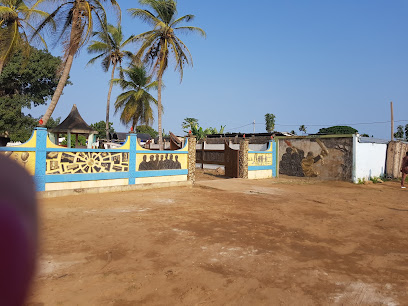
Café Boson
Discover Café Boson in Ouidah, where exceptional coffee meets stunning coastal views, creating an unforgettable experience for coffee lovers.
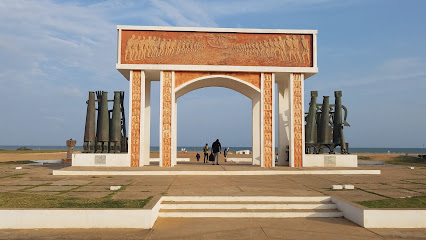
Arbre du Retour
Explore Arbre du Retour in Ouidah, a historical landmark symbolizing resilience and cultural heritage, rich in history and meaning.
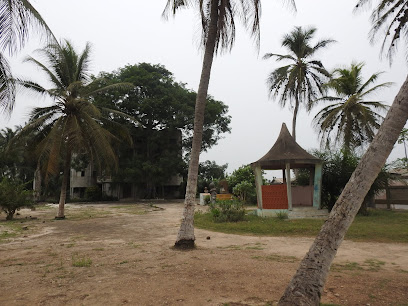
Ouidah plage
Discover the captivating blend of sun, culture, and history at Ouidah Plage, a must-visit coastal gem in Benin.

Memorial de Zoungbodji
Explore the Memorial de Zoungbodji in Ouidah, a poignant homage to the legacy of the transatlantic slave trade and a reflection on resilience.
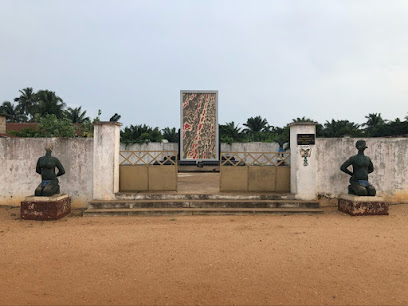
Plage de Ouidah
Experience the serene beauty of Plage de Ouidah, a stunning beach with rich history and vibrant local culture along Benin's coastline.

Python temple
Experience the spiritual essence of Benin at Python Temple, a sacred shrine dedicated to the veneration of pythons in Ouidah, rich in cultural heritage.

Mémorial ZOMACHI
Discover the essence of Benin's history at Mémorial ZOMACHI, a cultural landmark that honors the resilience and heritage of the local community.
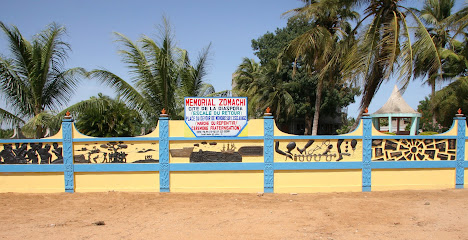
The tree of oblivion
Explore the Tree of Oblivion in Ouidah, a museum that reveals the profound history and vibrant culture of Benin's heritage.
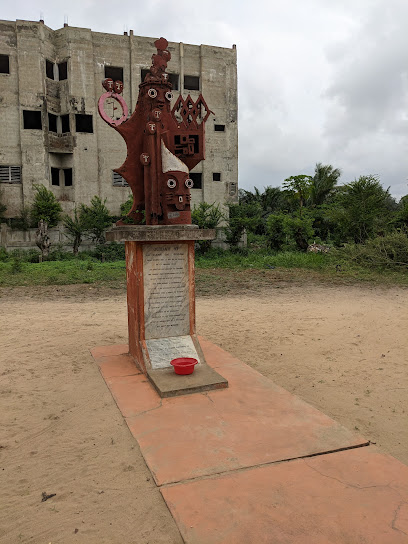
Unmissable attractions to see
The Museum of the Zinsou Foundation
Discover the rich tapestry of contemporary African art at the Museum of the Zinsou Foundation in Ouidah.
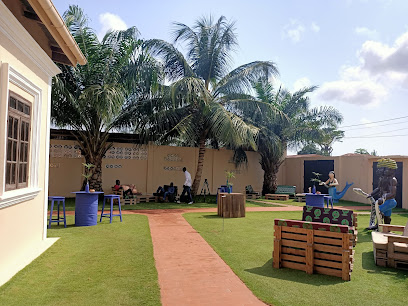
Memorial de Zoungbodji
Explore the Memorial de Zoungbodji in Ouidah, a profound tourist attraction revealing the historical legacy of the transatlantic slave trade in Benin.
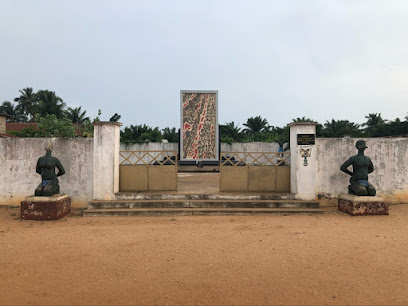
Plage de Ouidah
Discover the stunning Plage de Ouidah, where historical significance meets breathtaking natural beauty along the shores of Benin's Atlantic coast.
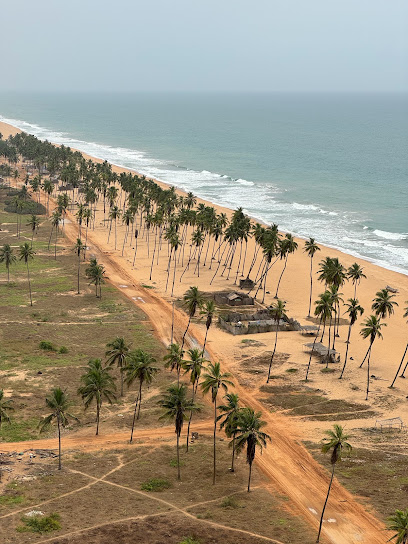
Mémorial ZOMACHI
Discover the profound history and cultural significance of Ouidah at Mémorial ZOMACHI, a landmark of remembrance and reflection.
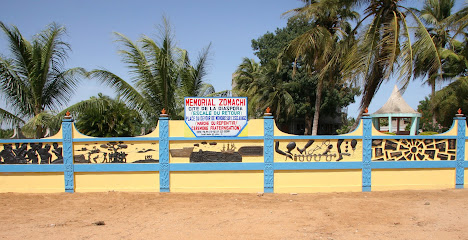
The tree of oblivion
Explore the poignant history of Benin at The Tree of Oblivion, a museum dedicated to preserving the rich cultural heritage and stories of resilience.
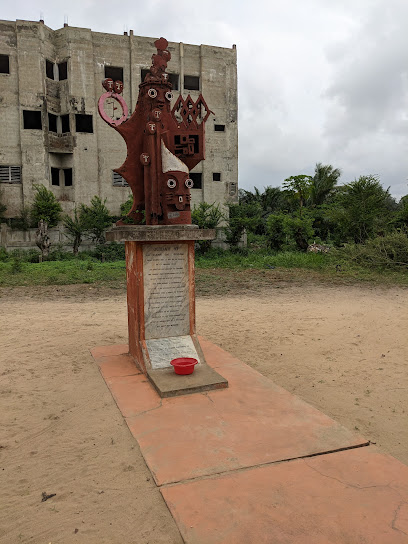
Hillacondji Beach
Experience the tranquil beauty of Hillacondji Beach, a hidden gem in Grand Popo, where golden sands meet vibrant local culture and adventure awaits.
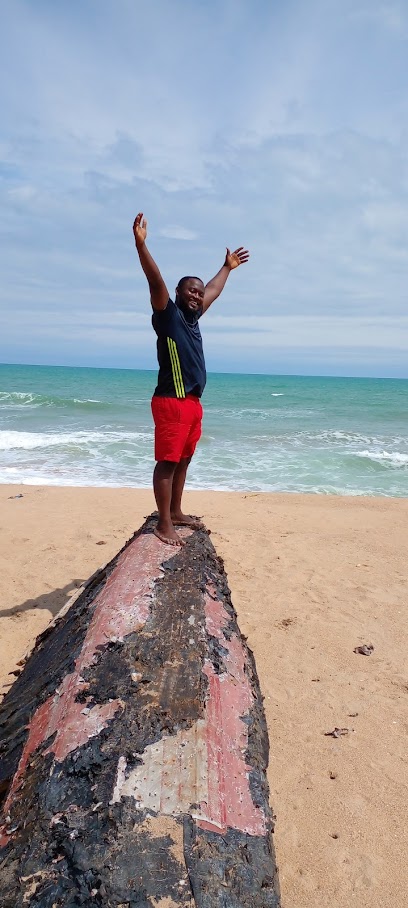
Essential places to dine
Le Lieu Unique
Experience the vibrant flavors of Benin at Le Lieu Unique - where local traditions meet global cuisine in a cozy atmosphere.
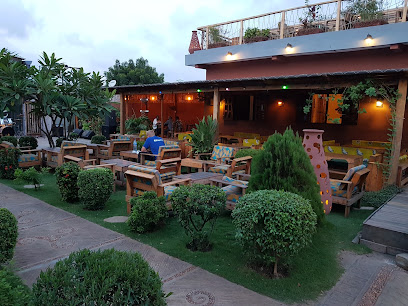
Le Hublot
Discover culinary delights at Le Hublot in Cotonou—where Belgian flavors meet beachside bliss.
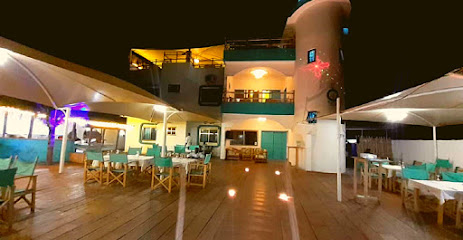
Face À La Mer
Experience exquisite seafood and local flavors at Face À La Mer in Cotonou, where culinary delights meet breathtaking ocean views.
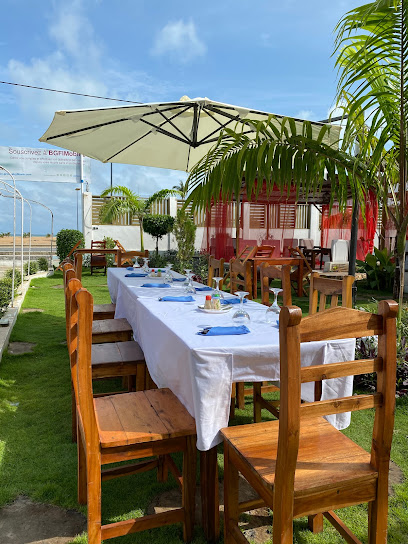
Blue Moon bar & grill'
Discover authentic barbecue delights at Blue Moon Bar & Grill in Ouidah - where flavor meets culture in every bite.
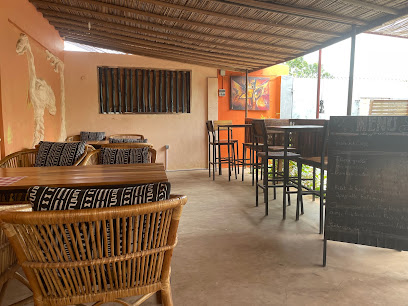
Restaurant L'Amicale
Experience authentic Beninese cuisine at Restaurant L'Amicale in Ouidah - where every dish tells a story.
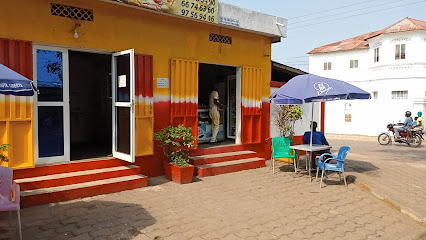
Les délices de la côte
Discover authentic Beninese flavors at Les Délices de la Côte in Ouidah – where every dish tells a story.
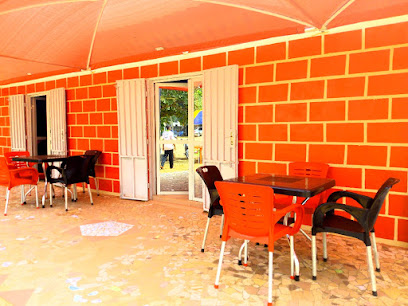
Hakuna matata restaurant grillades
Experience the vibrant culinary scene at Hakuna Matata Restaurant Grillades in Ouidah, where local flavors meet a warm and inviting atmosphere.
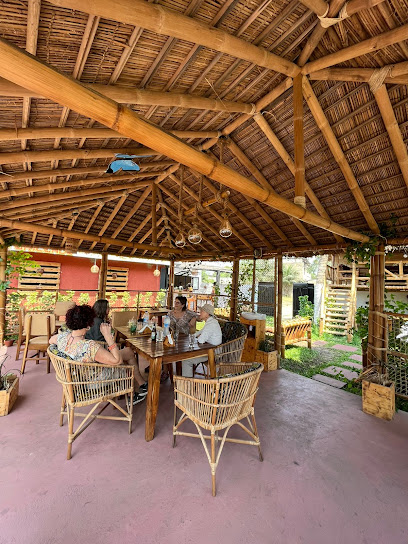
La Manne
Discover La Manne in Ouidah – where traditional Beninese flavors meet international culinary delights in a warm and inviting atmosphere.
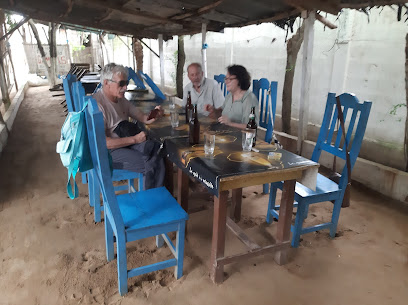
nayieka
Discover Nayieka in Ouidah – where exquisite flavors meet artistic ambiance for an unforgettable dining experience.
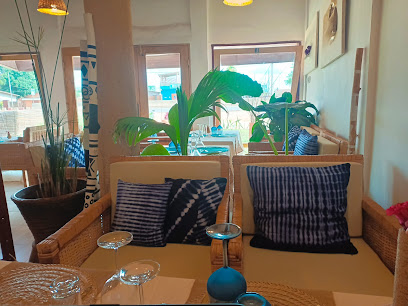
Restaurant DAGBEMABOU
Experience authentic Beninese cuisine at Restaurant DAGBEMABOU in Ouidah - where every meal tells a story of flavor and tradition.
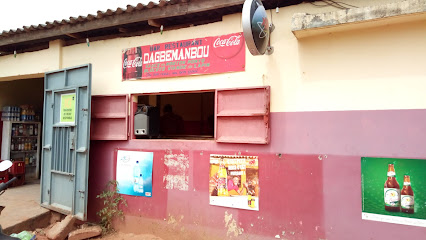
Alozo Terrasse
Experience authentic African cuisine at Alozo Terrasse in Ouidah, where every dish tells a story and every visit feels like home.
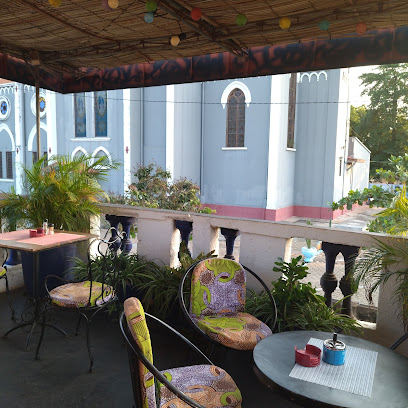
Blue Beach
Discover Blue Beach: A delightful restaurant in Ouidah offering fresh seafood and local cuisine with breathtaking ocean views.
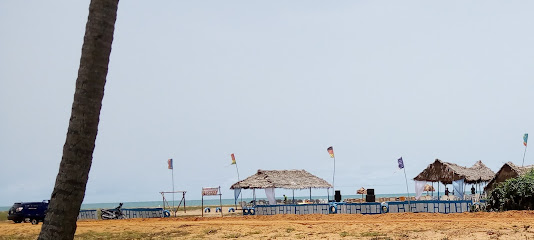
Citro grill
Experience authentic Beninese cuisine at Citro Grill in Ouidah, where vibrant flavors meet inviting ambiance for an unforgettable dining journey.
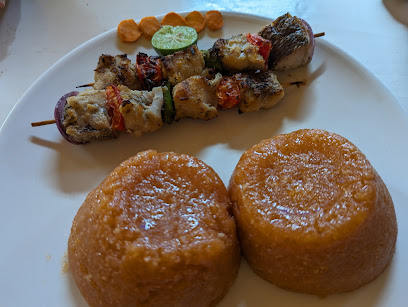
BAR RESTAURANT WADOU - OUIDAH
Experience the authentic flavors of Benin at Bar Restaurant Wadou in Ouidah - where local cuisine meets warm hospitality.
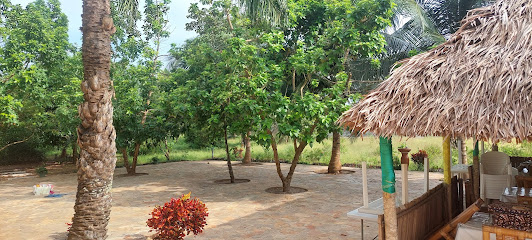
Markets, malls and hidden boutiques
Dantokpa Market
Discover the heart of Cotonou at Dantokpa Market, a vibrant marketplace bursting with local culture, crafts, and culinary delights.
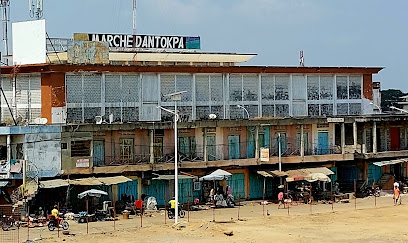
Marche Ganhi
Experience the vibrant culture and flavors of Cotonou at Marche Ganhi, Benin's bustling fresh food market.
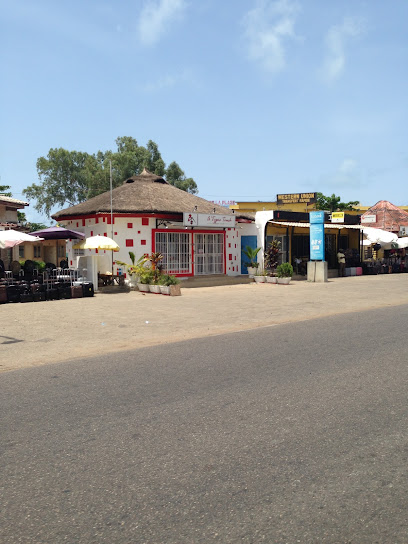
La Casa Del Papa
Discover the charm of La Casa Del Papa in Ouidah, where comfort meets culture in the heart of Benin's coastal paradise.

Pythons Temple
Explore the mystical Pythons Temple in Ouidah, a sacred site where spirituality and culture intertwine, offering a unique glimpse into Benin's Vodun traditions.
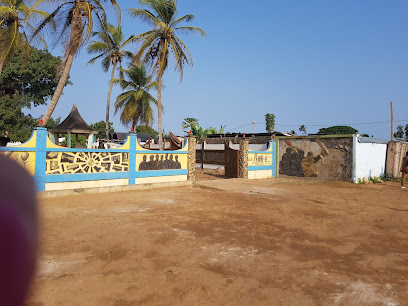
Paradisia Hôtel
Discover comfort and local culture at Paradisia Hôtel in Cotonou, the perfect base for exploring the vibrant life of Benin.
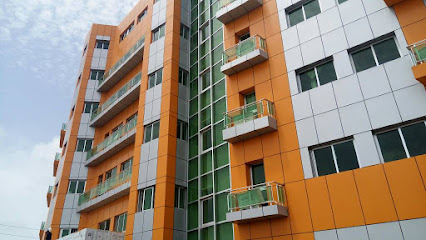
Fidjrossè Beach
Explore the tranquil shores of Fidjrossè Beach in Cotonou, where golden sands meet azure waters for the ultimate relaxation getaway.
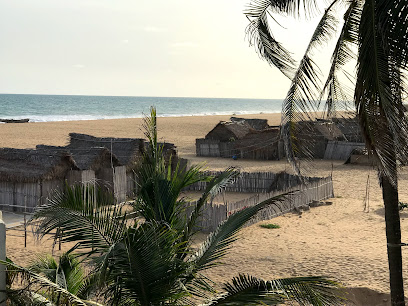
Le Hublot
Discover Le Hublot, a charming hotel and restaurant in Cotonou offering Belgian cuisine and grilled dishes, all with stunning views and a breezy terrace.
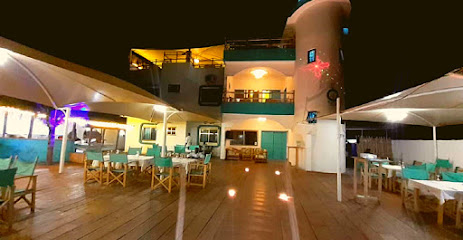
The Museum of the Zinsou Foundation
Explore contemporary African art at the Museum of the Zinsou Foundation in Ouidah, a cultural gem showcasing the richness of modern artistic expression.
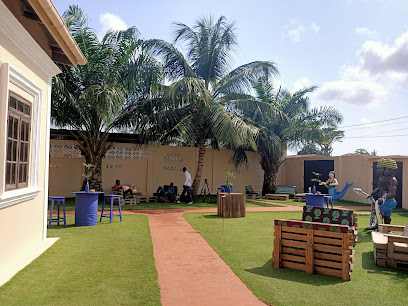
La Perle du Golfe
Discover La Perle du Golfe, Cotonou's premier fish store, offering the freshest seafood and a taste of local culinary traditions.
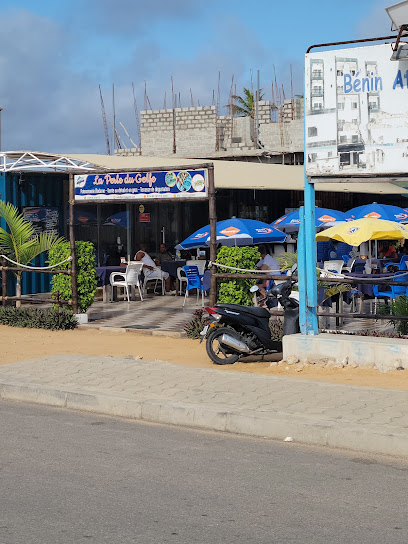
Djêgba Hôtel
Experience comfort and tranquility at Djêgba Hôtel in Ouidah, where modern amenities meet the charm of Beninese culture.

Bab's Dock
Experience the vibrant charm of Bab's Dock in Cococodji, a serene recreation center perfect for relaxation and adventure in Benin Republic.
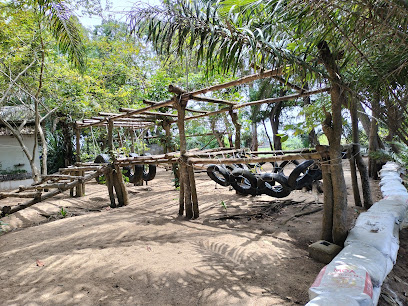
BOOKCONEKT
Explore the literary charm of Cotonou at BOOKCONEKT - a paradise for readers with its extensive collection and inviting atmosphere.

Topnelly
Explore Topnelly Market in Cotonou, a colorful hub of local culture, delicious food, and unique crafts that captures the essence of Benin.

Les Rives De Toho
Experience the serene beauty and warm hospitality at Les Rives De Toho, your perfect getaway in Pahou.
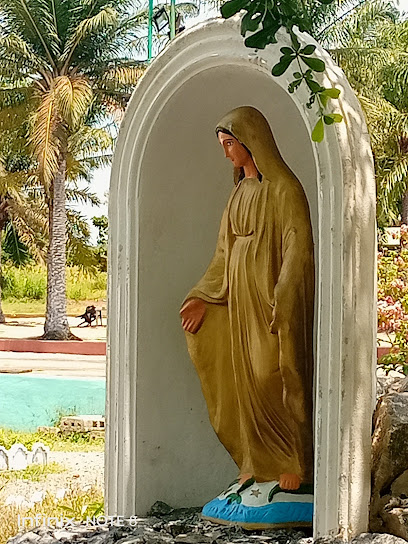
LABEL BENIN
Explore LABEL BENIN in Cotonou for a vibrant shopping experience filled with local flavors, fresh produce, and unique products that reflect Benin's rich culture.
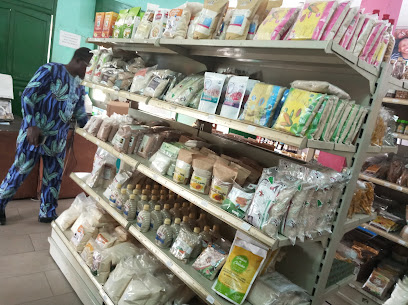
Essential bars & hidden hideouts
Code Bar
Experience the vibrant nightlife of Cotonou at Code Bar, where great drinks and lively ambiance come together for an unforgettable evening.
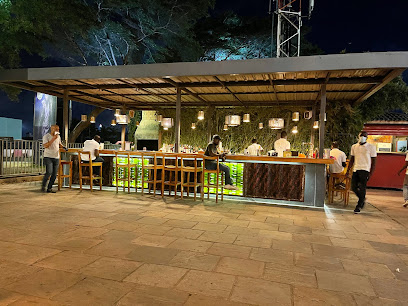
La Casa Del Papa
Experience the charm of La Casa Del Papa, a serene hotel on Ouidah Plage, blending relaxation with cultural exploration in beautiful Benin.

Sun Beach Hôtel
Discover the tranquil beauty of Cotonou at Sun Beach Hôtel, your perfect retreat with modern amenities and access to local attractions.

Restaurant Dream Beach
Experience the vibrant flavors of Cotonou at Restaurant Dream Beach, where local cuisine meets international flair in a lively atmosphere.
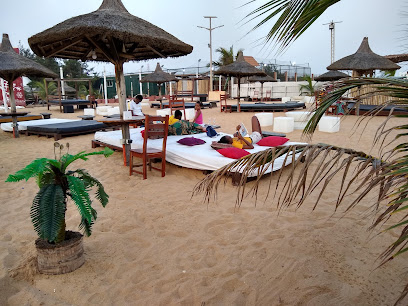
Le Hublot
Experience the perfect blend of relaxation and culinary delight at Le Hublot in Cotonou, where Belgian flavors meet coastal charm.
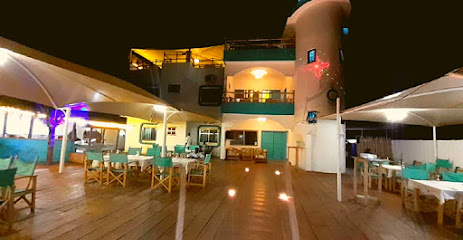
Millenium Popo Beach Hotel
Experience the beauty and tranquility of Grand Popo at Millenium Popo Beach Hotel, your perfect getaway in Benin.
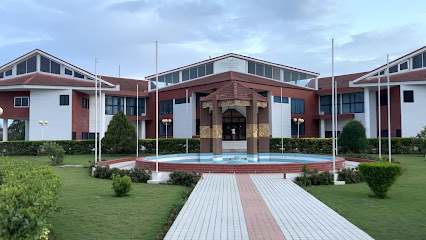
Hôtel Awalé Plage - Village Vacances
Experience the perfect blend of relaxation and adventure at Hôtel Awalé Plage - your coastal paradise in Grand Popo, Benin.

Benin Atlantic Beach Hôtel
Experience serene beachfront living at Benin Atlantic Beach Hôtel, your perfect getaway in Cotonou, blending comfort, culture, and coastal beauty.

Auberge de Grand-Popo
Experience the serene beauty of Auberge de Grand-Popo, a charming hotel where relaxation meets vibrant local culture along the stunning coastline of Benin.

Coco beach
Experience the delightful coastal flavors of Benin at Coco Beach, a must-visit restaurant in Cotonou with stunning ocean views.
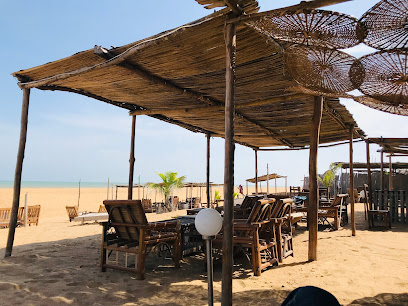
Face À La Mer
Experience the best of coastal dining at Face À La Mer, where delicious local cuisine meets stunning ocean views in Cotonou.
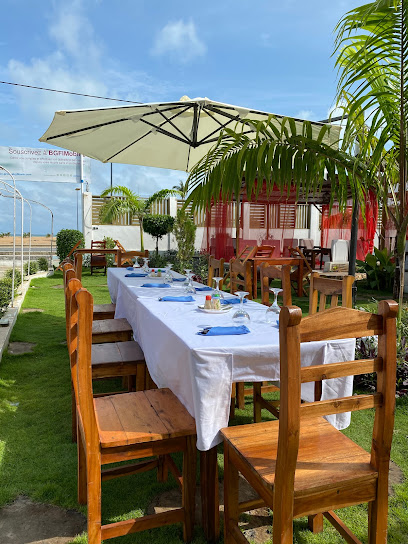
The Garden Rooftop - Bar - Restaurant
Discover the vibrant nightlife at The Garden Rooftop - Bar - Restaurant, where stunning views and delightful drinks await in Cotonou.
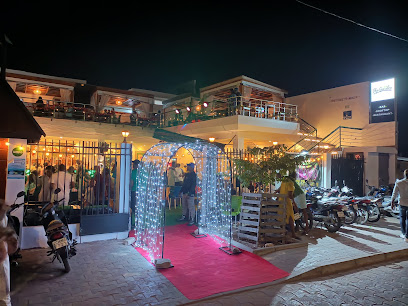
Code Bar On The Beach
Discover the vibrant Code Bar On The Beach in Cotonou, where stunning views, delicious cuisine, and lively atmosphere create the ultimate beach experience.
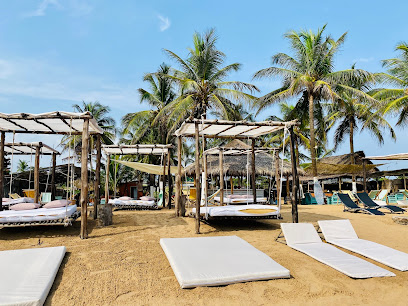
Riviera Hotel Benin
Experience modern comfort and local culture at Riviera Hotel Benin, your gateway to exploring the vibrant city of Cotonou.
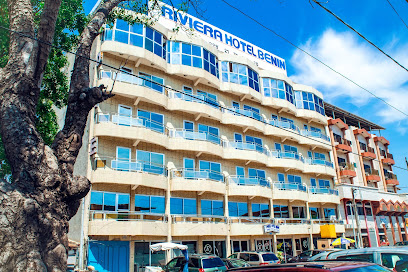
Local Phrases about Ouidah Beach
-
- HelloKuabo
[kwa-bo] - GoodbyeO dabo
[o da-bo] - YesHan
[han] - NoIna
[ee-na] - Please/You're welcomeMèsi
[meh-see] - Thank youO se
[o seh] - Excuse me/SorryKparakò
[kpa-ra-kaw] - How are you?Kònò a dú
[ko-no a doo] - Fine. And you?Dúpé. È èní
[doo-peh. eh eh-nee] - Do you speak English?Sẹ́ gbẹ̀kẹ́ ní edè yi?
[sheh gbe-ke nee e-deh yee] - I don't understandKò ní rírú
[ko nee ree-roo]
- HelloKuabo
-
- I'd like to see the menu, pleaseMò fún mi lẹ́nu, kí ẹ́ dá
[mo fun mi leh-nu, keh eh da] - I don't eat meatKò ní ń jẹ̀ èèyàn
[ko nee n je ee-yan] - Cheers!Ẹ̀yọ̀
[eh-yo] - I would like to pay, pleaseMò fún mi lọ, kí ẹ́ dá
[mo fun mi lo, keh eh da]
- I'd like to see the menu, pleaseMò fún mi lẹ́nu, kí ẹ́ dá
-
- Help!Ẹ jọ̀wọ́!
[eh jo-wo] - Go away!Lọ́sí!
[low-see] - Call the Police!Wọ̀n yàn ìdílé àṣẹ̀
[won yan ee-dee-leh a-sheh] - Call a doctor!Wọ̀n yàn oní ìwọ́
[won yan oh-nee ee-wo] - I'm lostMo wà lọ
[mo wa low] - I'm illMo lọ́wọ́
[mo low-wo]
- Help!Ẹ jọ̀wọ́!
-
- I'd like to buy...Mò fún mi ṣí...
[mo fun mi shee] - I'm just lookingMò kò sọ
[mo ko soh] - How much is it?Bàmi kééró
[ba-mi keh-roh] - That's too expensiveYí wúrà lọ́wọ́
[yee woo-ra low-wo] - Can you lower the price?Ṣe ó lọ́wọ́ ìtọjú?
[sheh oh low-wo i-toh-ju]
- I'd like to buy...Mò fún mi ṣí...
-
- What time is it?Kí olóró ò ní?
[kee o-lo-ro o nee] - It's one o'clockÓ lọ́kan wà
[oh low-kan wa] - Half past (10)Aadọdun (10)
[a-a-doo-dun (10)] - MorningỌ̀sán
[oh-san] - AfternoonỌ̀wọ̀rọ̀
[oh-wo-ro] - EveningỌ̀sán
[oh-san] - YesterdayÀná
[ah-nah] - TodayỌ̀ní
[oh-nee] - TomorrowỌ̀la
[oh-la] - 1Okan
[oh-kan] - 2Eji
[eh-jee] - 3Ẹta
[eh-ta] - 4Ẹrin
[eh-reen] - 5Ẹrun
[eh-run] - 6Ẹfọ
[eh-foh] - 7Ẹfa
[eh-fah] - 8Ẹje
[eh-jeh] - 9Ẹsan
[eh-sahn] - 10Ẹwa
[eh-wah]
- What time is it?Kí olóró ò ní?
-
- Where's a/the...?Níbẹ̀ ni ...?
[nee-bee nee] - What's the address?Kí àdírẹ́si ní?
[kee a-dee-reh-see nee] - Can you show me (on the map)?Ṣe o le so mi (nínú àkọ́kọ́)?
[sheh oh leh show me nee-noo a-ko-ko] - When's the next (bus)?Níbẹ̀ ni ìrò ìsẹ̀lẹ̀?
[nee-bee nee ee-ro ee-she-le] - A ticket (to ....)Ìtọjú (sí ....)
[i-toh-ju see]
- Where's a/the...?Níbẹ̀ ni ...?
History of Ouidah Beach
-
Ouidah Beach is situated in the historic heartland of the Kingdom of Dahomey, a powerful West African state that existed from around 1600 until the late 19th century. The kingdom was known for its sophisticated military, rich culture, and elaborate religious practices. The Dahomey Amazons, an all-female military regiment, also originated here, adding to the area’s unique historical tapestry.
-
Ouidah Beach holds a somber place in history as one of the major ports involved in the Atlantic slave trade. Between the 17th and 19th centuries, countless enslaved Africans were shipped from Ouidah to the Americas. The 'Slave Route’ is an important historical pathway that begins in the town of Ouidah and leads to the beach, where captives were loaded onto ships. The 'Door of No Return' monument stands as a poignant reminder of this dark chapter.
-
Built in 1721, the Fort of São João Baptista de Ajudá was established by the Portuguese as a trading post. Over time, it became a central hub for the slave trade. The fort was abandoned in the 19th century as the slave trade declined, but it remains a significant historical site, now housing a museum that offers insights into the region's colonial past and the impact of European trade on local societies.
-
Ouidah Beach is deeply intertwined with Vodun (Voodoo), a religion that originated in the region. The annual Vodun Festival, held every January, attracts visitors from around the world. The beach serves as a sacred site for various rituals and ceremonies. Visitors can explore the Sacred Forest of Kpassè and various temples dedicated to Vodun deities, experiencing firsthand the rich spiritual traditions that continue to thrive in Ouidah.
-
The legend of the Whydah Gally, a pirate ship commanded by the infamous pirate Captain 'Black Sam' Bellamy, adds a layer of intrigue to Ouidah Beach. Originally a slave ship, the Whydah Gally was captured by Bellamy in 1717 and turned into his flagship. Though the ship eventually wrecked off the coast of Massachusetts, its origins in Ouidah connect the area to the broader swashbuckling tales of piracy in the Atlantic.
-
In the late 19th century, Ouidah was annexed by the French and became part of French Dahomey. The colonial period introduced new architectural styles, administrative systems, and cultural influences, many of which are still visible today. The French influence can be seen in the colonial buildings that dot the town and the remnants of infrastructure that transformed Ouidah into a key location for trade and governance in colonial West Africa.
-
Today, Ouidah Beach is not only a historic site but also a vibrant cultural destination. It hosts various cultural festivals, art exhibitions, and events that celebrate both its rich history and contemporary creativity. The blend of history and modernity makes Ouidah Beach a unique place where the past and present coexist, providing visitors with a multifaceted experience of Benin's cultural landscape.
Ouidah Beach Essentials
-
Ouidah Beach is located in Ouidah, Benin. The nearest international airport is Cotonou Cadjehoun Airport, approximately 40 kilometers away. From Cotonou, you can take a taxi or a bus to Ouidah. The journey typically takes around 1 to 1.5 hours by road. Alternatively, you can hire a private car for a more comfortable ride.
-
Ouidah is a relatively small town, and many of its attractions, including Ouidah Beach, are within walking distance. For longer trips within the town or to nearby areas, local taxis are readily available and relatively inexpensive. Motorbike taxis, known as 'zemidjans', are also a popular and affordable option. If you prefer more control over your travel schedule, renting a car is a convenient option.
-
The official currency in Benin is the West African CFA franc (XOF). Credit cards are accepted in some hotels, restaurants, and shops in Ouidah, but it is advisable to carry cash, especially for smaller establishments and local markets. ATMs are available in Ouidah, but it is wise to withdraw sufficient cash in Cotonou before traveling to Ouidah.
-
Ouidah is generally considered a safe destination for tourists. However, like any travel destination, it is advisable to take standard precautions. Avoid walking alone at night in unfamiliar areas and keep an eye on your belongings in crowded places. While there are no specific high-crime areas targeting tourists, it is always best to stay vigilant and aware of your surroundings. Petty theft, such as pickpocketing, can occur, so keep valuables secure.
-
In case of an emergency, dial 117 for police assistance, 118 for the fire department, and 112 for medical emergencies. The local police station and medical facilities are available in Ouidah. It is recommended to have travel insurance that covers medical emergencies. For minor health issues, there are pharmacies in the town where you can purchase over-the-counter medications.
-
Fashion: Do dress modestly, especially when visiting religious or cultural sites. Avoid wearing revealing clothing. Religion: Do respect local customs and traditions. Show respect when visiting religious sites by dressing modestly and behaving appropriately. Public Transport: Do be respectful and greet drivers and fellow passengers. Don’t argue with the driver or other passengers. Greetings: Do greet people with a handshake and a smile. A slight bow of the head is also a sign of respect. Eating & Drinking: Do try local delicacies and accept food offerings graciously. Don’t refuse hospitality, as it is considered impolite.
-
To experience Ouidah Beach like a local, visit the local markets where you can buy fresh produce and traditional Beninese goods. Engage with locals, as they are often friendly and willing to share stories about the town's history and culture. Don't miss visiting the Ouidah Museum of History and the Door of No Return, which are significant historical sites. For a unique experience, take a guided tour to learn about the area's rich heritage.
Nearby Cities to Ouidah Beach
-
Things To Do in Cotonou
-
Things To Do in Lokossa
-
Things To Do in Aneho
-
Things To Do in Porto-Novo
-
Things To Do in Lomé
-
Things To Do in Notse
-
Things To Do in Lagos
-
Things To Do in Atakpamé
-
Things To Do in Abeokuta
-
Things To Do in Kpalimé
-
Things To Do in Ho
-
Things To Do in Ibadan
-
Things To Do in Koforidua
-
Things To Do in Accra
-
Things To Do in Benin City








